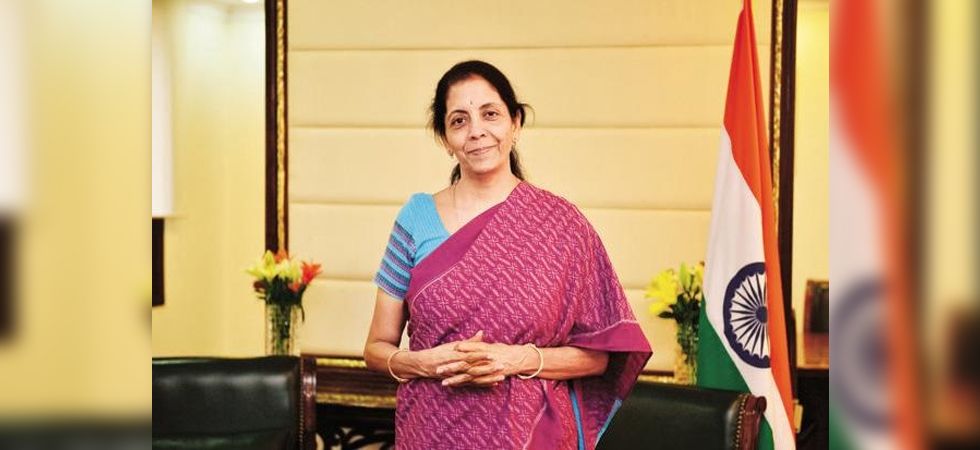“Would Stay Cautious on Libra Project”, Says Indian Finance Minister Nirmala Sitharaman
Finance Minister of India, Nirmala Sitharaman, reportedly stated that India would also be joining among others in remaining cautious concerning Facebook’s Libra.
Last week’s 2019 Annual Meetings of the International Monetary Fund and the World Bank in Washington, D.C. discussed the Libra project. Sitharaman had then informed the reporters from the New Indian Express that:
“On our side, the Reserve Bank Governor spoke about it during our turn to intervene. I got the sense that many countries were cautioning on rushing into this […]. Countries will have to show extreme caution much before anything is said or moved on this.”
Sitharaman made a note of how the representatives of other nations were putting forth their views against the use of the term “stable currency” or “stablecoin.” They instead emphasized the token’s links to cryptocurrency.
As reported, Libra has been designated a stablecoin by Facebook — a type of digital asset designed to reduce price volatility. It was previously proposed to be backed by a bunch of national fiat currencies, which comprised of the U.S. dollar, euro, Japanese yen, British pound, and Singapore dollar.
Sitharaman also mentioned how the presentations at the annual meetings acknowledged the potential that virtual currencies had. They still without fail “spoke about the challenges together with talking about it as a necessary step forward. So everyone was stepping cautiously on it.”
It is visible how citizens, crypto industry figures, governments, regulators, and central bankers worldwide are all being extremely cautious about the whole Libra project.
Yuan is not a part of Libra’s proposed reserve assets, and therefore, China has also ratcheted up its previous plans for a central bank digital currency in a bid to protect against what they think is a threat to its monetary sovereignty and legal currency status.
The former governor of the People’s Bank of China mentioned how “people valuing Libra is inseparable from the global dollarization trend.”
According to New Indian Express, the digital currency issues might as well lead to worsening effects on the existing tensions between the global superpowers. It could accurately be the case when it comes to currency manipulation.
The United States and many others have had strong opinions against the issuance of global stablecoin, and that is primarily because of the troubles related risks to monetary sovereignty.
Facebook has thus been under constant pressure, which led to it revealing this week that it was considering using a multitude of stablecoins. These would, therefore, represent different national currencies instead of its original design. They even stated how this was not their original plan for the project.
In other news, it was reported last month that India has been witnessing signs of an was an expected brain drain, as the government contemplates over stark legislation that would term all domestic cryptocurrency investments as illegal.
The ban would worsen an existing and much-contested prohibition by the Reserve Bank of India’s ban on domestic banks’ dealings with crypto-related businesses.
Stay informed with daily updates from Blockchain Magazine on Google News. Click here to follow us and mark as favorite: [Blockchain Magazine on Google News].
Get Blockchain Insights In Inbox
Stay ahead of the curve with expert analysis and market updates.
latest from tech
Disclaimer: Any post shared by a third-party agency are sponsored and Blockchain Magazine has no views on any such posts. The views and opinions expressed in this post are those of the clients and do not necessarily reflect the official policy or position of Blockchain Magazine. The information provided in this post is for informational purposes only and should not be considered as financial, investment, or professional advice. Blockchain Magazine does not endorse or promote any specific products, services, or companies mentioned in this posts. Readers are encouraged to conduct their own research and consult with a qualified professional before making any financial decisions. The featured image used is just a creative depiction of the title and it does not intend to hurt sentiments of any person or institution. If it hurts anyone sentiments, please do not hesitate to reach out to Blockchain Magazine.

 Bitcoin
Bitcoin  Ethereum
Ethereum  XRP
XRP  Tether
Tether  Solana
Solana  USDC
USDC  Dogecoin
Dogecoin  Cardano
Cardano  Lido Staked Ether
Lido Staked Ether  TRON
TRON  Chainlink
Chainlink  Wrapped Bitcoin
Wrapped Bitcoin  Sui
Sui  Wrapped stETH
Wrapped stETH  Avalanche
Avalanche  Stellar
Stellar  Hedera
Hedera  Toncoin
Toncoin  Shiba Inu
Shiba Inu  LEO Token
LEO Token  Hyperliquid
Hyperliquid  Bitget Token
Bitget Token  Litecoin
Litecoin  WETH
WETH  USDS
USDS  Polkadot
Polkadot  Bitcoin Cash
Bitcoin Cash  Ethena USDe
Ethena USDe  MANTRA
MANTRA  Wrapped eETH
Wrapped eETH  Uniswap
Uniswap  Ondo
Ondo  Pepe
Pepe  Aave
Aave  Monero
Monero  WhiteBIT Coin
WhiteBIT Coin  NEAR Protocol
NEAR Protocol  Mantle
Mantle  Official Trump
Official Trump  Aptos
Aptos  Dai
Dai  Internet Computer
Internet Computer  Ethereum Classic
Ethereum Classic  Bittensor
Bittensor  Cronos
Cronos  OKB
OKB  POL (ex-MATIC)
POL (ex-MATIC)  Gate
Gate 




